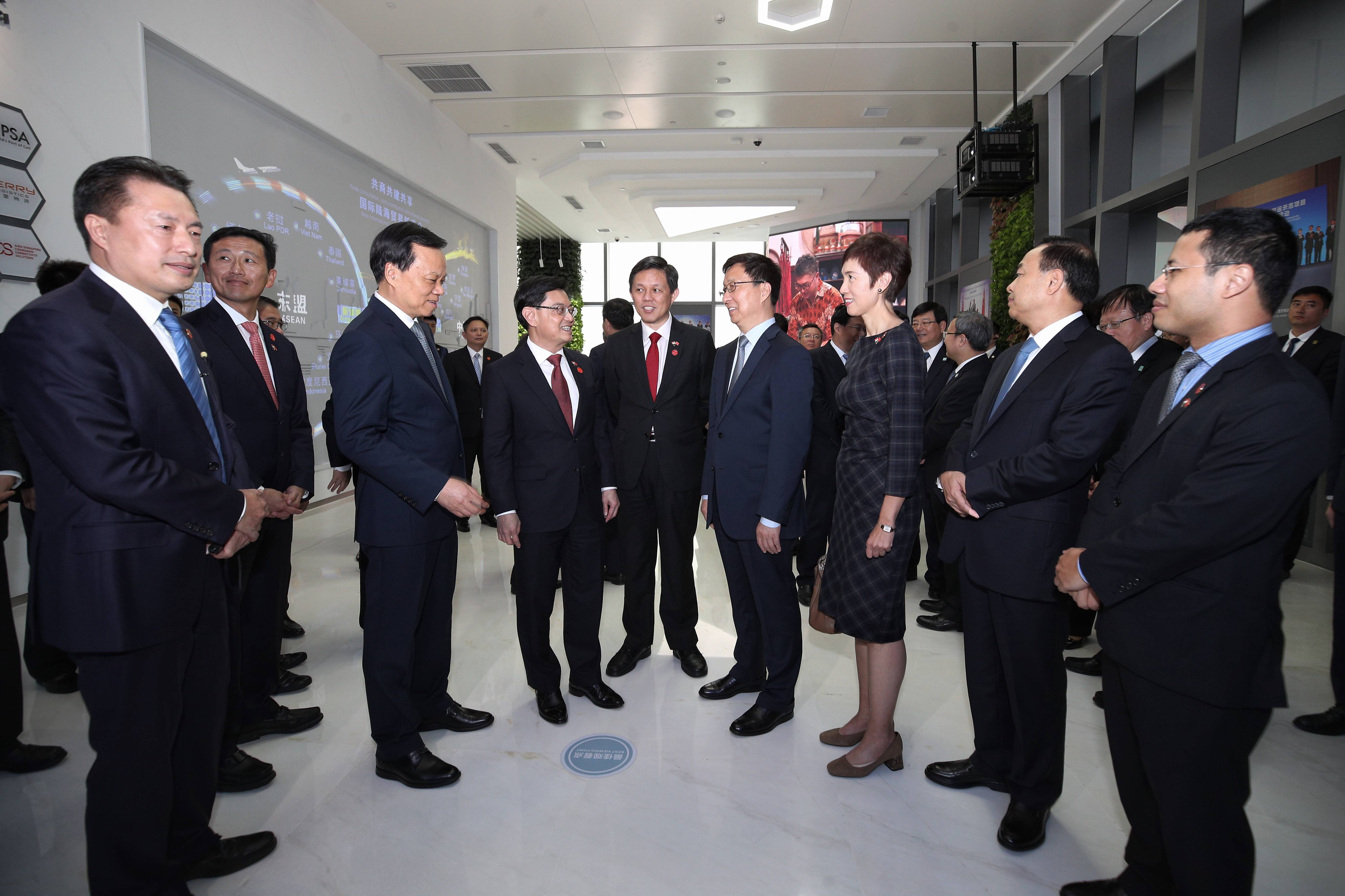BEIJING: Deputy Prime Minister Heng Swee Keat on Thursday (Oct 17) said that Singapore should continue to “focus on structural policies” instead of “extraordinary measures” during this period of weakness in the global economy.
Mr Heng also announced that the Government intends to hold more extensive consultations with business leaders in the coming months as it maps out measures to weather the storm.
Singapore has not been spared from the economic fallout as the US-China trade war continues.
The economy grew at 0.1 per cent year-on-year in the third quarter, at the same pace of growth in the previous quarter, which was the slowest in a decade.
“We are at a state of the global economy where there are significant weaknesses,” said Mr Heng, who was speaking to Singapore media in Beijing.
“We have been monitoring this very closely over the last few months already and there are a number of things that we can do.”
For instance, the Monetary Authority of Singapore announced earlier this week that the Singapore dollar would adopt a slightly slower rate of appreciation.
READ: The S$NEER and its slope, width and centre: Questions about Singapore’s monetary policy
READ: Singapore’s exports down 8.1% in September in 7th straight month of decline
“Budget 2020 is coming up in a few months’ time and we will continue to monitor the state of the global economy and there are many sectors in our economy that are still growing,” added Mr Heng.
“So you see, while overall there is weakness, you see fairly uneven performances across the different areas. But we are not at the stage where we need to amount to extraordinary measures. So what we need to continue to focus on, is on structural policies.”
The country’s industry transformation maps are an important part of this and Mr Heng said that launching this early has given Singapore a head start.
This is because people now have a better understanding of the opportunities offered by technological advances.
“I think that the fourth industrial revolution is coming – we are at a very early stage. But the earlier we prepare for it, the better we are able to ride this wave of growth,” said Mr Heng.
“What I am hoping to do is to get businesses and business leaders to be much more involved in thinking about these issues and working together even as they compete with one another.”
US-CHINA TRADE RELATIONS
On Thursday, Mr Heng met Chinese Vice Premier Liu He, who has been China’s lead negotiator in ongoing trade talks with the US.
Singapore Deputy Prime Minister Heng Swee Keat shakes hands with Chinese Vice Premier Liu He (right) in Beijing during a four-day visit to China on Oct 17, 2019. (Photo: MCI)
“Vice Premier Liu He shares the view which we have also articulated publicly that the US-China trade conflict is negative for both countries and for the world and the earlier that there is some resolution to it, the better it is for the whole world,” Mr Heng said.
“I think it is not realistic to expect that a whole range of issues will be resolved in a few meetings. Some are fairly long-term issues that will take time to resolve,” Mr Heng added.
China has said it hopes to reach a phased agreement with the US as soon as possible.
READ: Singapore-China collaboration on smart, sustainable cities brings opportunities for local firms: Heng Swee Keat
READ: Singapore and China sign 9 agreements, exchange views on ‘excellent’ state of relations
“Being able to agree on a number of key areas will be important progress and in turn that will provide for greater confidence to investors, not just in the US and China, but all around the world,” said Mr Heng.
“I think the restoration of global confidence is important for investors. It is important for us to tackle these longer-term challenges and important for us to harness the use of better technology in the coming years.”
FOURTH-GENERATION LEADERSHIP
During his four-day visit to China, Mr Heng travelled to Chongqing, Tianjin and Beijing.
He was asked about the relationship between Chinese leaders and Singapore’s fourth-generation (4G) leaders.
Mr Heng told reporters the various members of the 4G leadership have been involved in various bilateral and business councils for several years and have become more deeply involved as they rise through the ranks.
“Take for example Minister Desmond Lee. Yesterday was my first visit to Tianjin but it was his third visit. He’s been there because he’s been a deputy for some of the meetings already. So he’s not alien to them,” said Mr Heng.

DPM Heng Swee Keat and the Singapore delegation in Chongqing on Oct 15, 2019. (Photo: MCI)
This is the case for other ministers as well.
“They’ve all been involved in various ways. So the engagements did not just start,” said Mr Heng.
Moving forward, Mr Heng added that Singapore must stay relevant and see how it can play a role at various stages of the country’s development.
PAP HAS “FAIRLY GOOD SLATE” OF CANDIDATES
Turning to domestic issues, Mr Heng was asked how 4G leaders are preparing for the next General Election, which has to be held by April 2021.
Mr Heng said that preparations have been made “all along” and the party has been interviewing a range of candidates.
“The party has a policy of regular renewal of our Members of Parliament and political office holders, so we have been searching and interviewing a whole range of candidates,” said Mr Heng.
“I would say we have a fairly good slate, but of course until the election itself, we will continue looking for candidates so we can have a stronger team in the coming years.”




